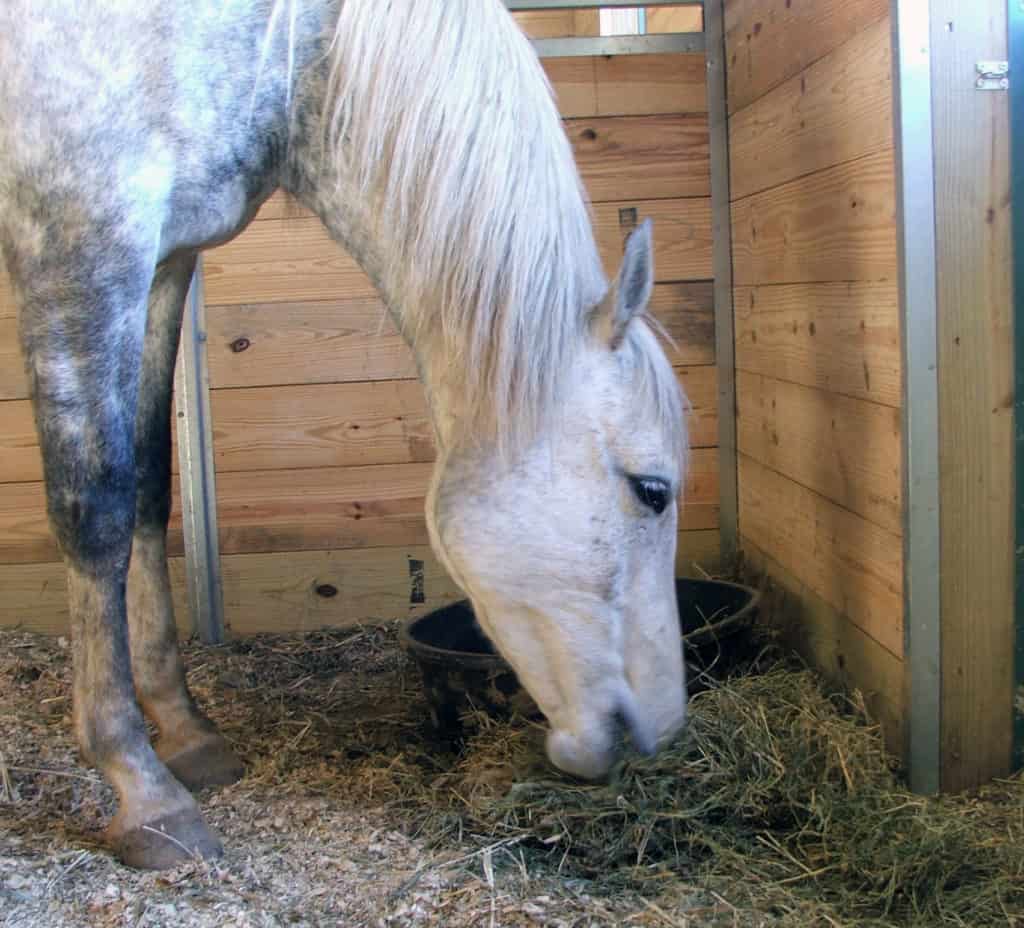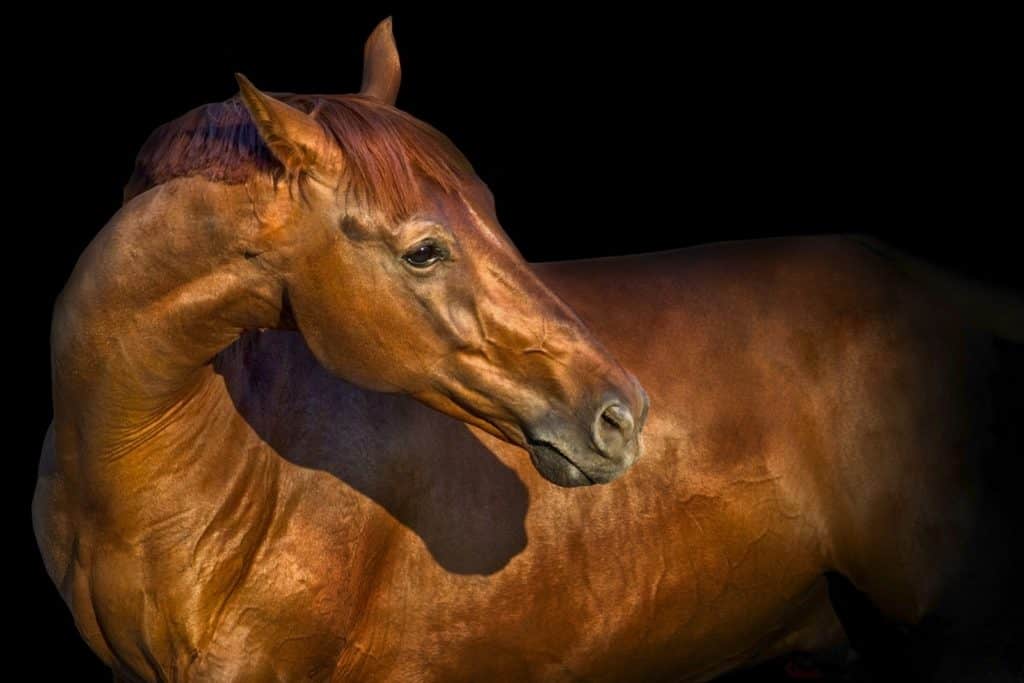
Deciphering Your Feed Tag: Performance Horse Feeds
These feeds are designed to boost horses’ calorie intake and meet additional nutrient needs that increase with work.

These feeds are designed to boost horses’ calorie intake and meet additional nutrient needs that increase with work.

Riding before your horse gets fed could put him at risk for gastric ulcers. Find out why.

While physicians have used capsule endoscopy in humans for more than a decade, it’s only recently become commercially available on the veterinary market for dogs and shows promise for use in horses.

Learn more about alfalfa and whether this leafy green legume is a good choice for your horse.

A performance horse’s diet must supply all the energy to remain at his best. But achieving that can be easier said than done. Here’s what to remember.

Are your horses getting the nutrition they need? Find out during Equine Nutrition Awareness Month, brought to you by The Horse and ADM Animal Nutrition.

Your horse might be benefiting from wheat middlings in his feed, which can help lower starch levels while maintaining a considerable calorie content.

Acid detergent fiber and neutral detergent fiber measurements can help you decide if hay is good for your easier keeper, broodmare, or growing foal.

When it comes to feeding your horses, don’t make the same mistakes you’ve made in the past in the new year.

Being well-prepared for colic could mean the difference between life and death for your horse. Here’s what you need to know.

Knowing elimination risk factors can help veterinarians, riders, and trainers make informed decisions to safeguard endurance horse welfare, researchers say.

While diet can indeed contribute to a horse being energetic, it’s not the only cause. Our nutritionist shares her thoughts.

Fats serve many important functions for horses, from increasing calorie consumption to reducing gastric ulcer severity.

In the past 30 years, researchers have made great strides in understanding gastric ulcers. Those findings and ones yet to be made can help improve horse health and welfare now and into the future.

Dr. Wayne McIlwraith describes how joint treatments for horses have changed over the years and what therapeutic options might be on the horizon.

Dr. Stephanie Valberg explains how five major advancements in veterinary technology have helped her and others learn more about and discover new equine muscle disorders.
Stay on top of the most recent Horse Health news with
"*" indicates required fields